Make sure you never miss an update. subscribe to the progress update newsletter
In this issue:
Features
Fish Forever Program Round-Up
Field-building Research
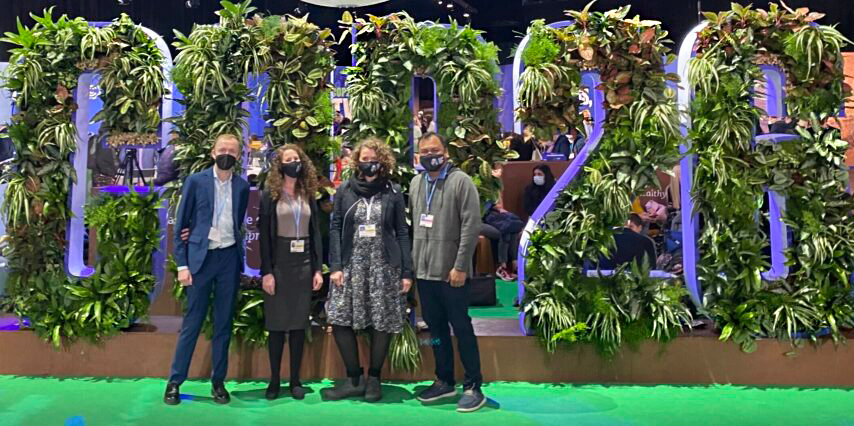
|
COP26, the IPCC Report, the Ocean, and Coastal Communities in BetweenOne of the stated goals of the UN COP26 was to help countries “adapt to protect communities and natural habitats.” Through in-person and virtual events, blogs, videos, a letter to world leaders, briefs, policy papers, media, an Op-Ed and a summary of our takeaways, Rare advanced the work to build the resilience of the people and nature at the heart of Fish Forever. |
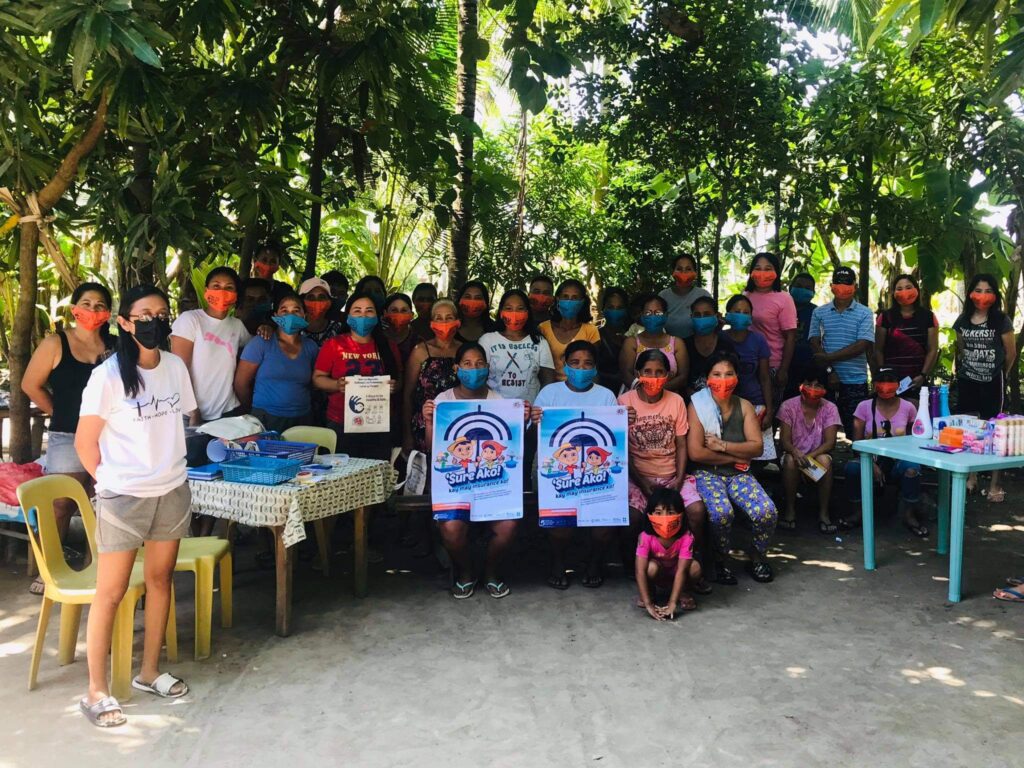
|
Insuring Coastal Communities Against Climate-related Risks and Natural DisastersInsurance programs can provide fishing families a financial safety net—and in turn, reduce their need to overfish. But it has been difficult to reach this segment of the population. Over the last year, Rare partnered with The Ocean Risk and Resilience Action Alliance to newly enroll over 4,000 fisheries-dependent individuals in basic livelihood insurance programs in the Philippines—over eight times the numbers anticipated, despite COVID-19 disruptions. |
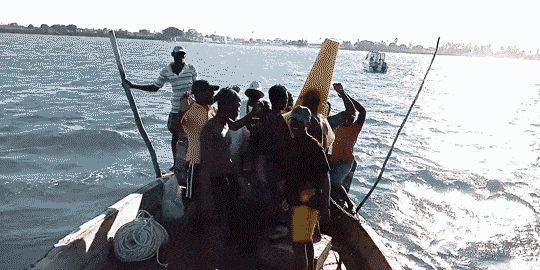
|
Marine Moz-Mentum Continues into 2021In November, Rare joined our partner communities in establishing Mozambique’s second set of marine reserves to be co-managed by local communities (the first happened in May). Eleven buoys off the coast of Nampula province mark three new marine reserves protecting over 2,000 ha of coral reefs and seagrass habitats—an area 3x bigger than New York’s Central Park. |
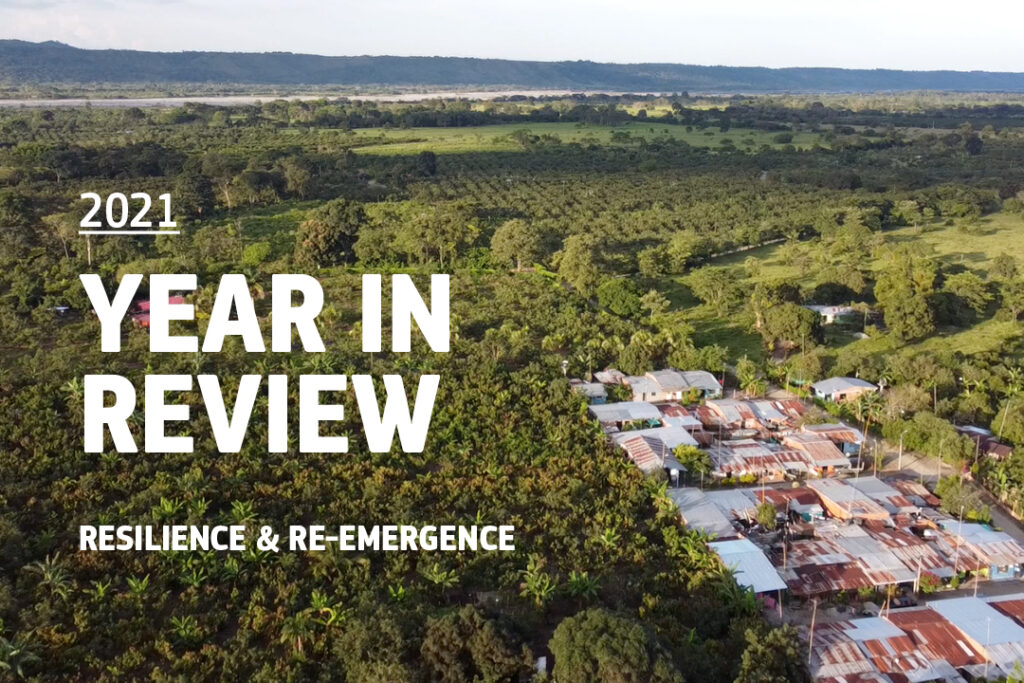
|
Rare 2021 Year-in-ReviewRare continues to pivot, adapt, and innovate in the face of a persistent pandemic, an ever-increasing climate emergency and a mounting biodiversity crisis. Despite these challenges, 2021 was a momentous year for driving impact at scale in Fish Forever and across Rare. From the Coastal 500 launch to behavior change and beyond, our digital 20201 Year-in-Review shares Rare’s progress and perseverance in achieving impact for people and nature. |
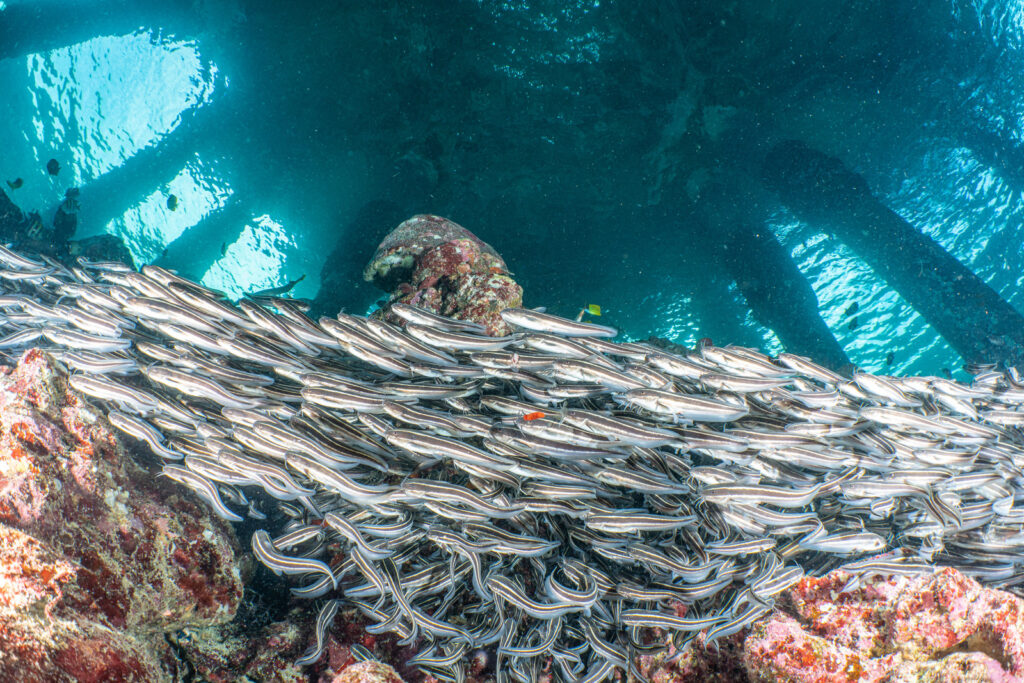
|
Program Round-upLegalizing Managed Access with Reserve Areas in Indonesia: Following the Governor of Southeast Sulawesi Province’s decree to ordain managed access and reserve areas, sixteen Fishery Management Bodies have now finalized and submitted their management plans for approval by the province government. By early 2022, we expect that 16 managed access and reserve areas, covering more than 280,000 hectares of marine waters, will be formally ordained. This will be a momentous milestone for the Fish Forever program in Indonesia. Fish Forever picks up steam in Guatemala: Rare has advanced program progress following June’s successful fisher registration drive in this new program geography. We collected baseline socio-economic data to measure our impact and secured a formal partnership with the Puerto Barrios municipality that will unlock support for our work. We also celebrated the establishment of Guatemala’s first three savings clubs, reaching over 30 women in Mestizo, Garifuna and Q’eqchi’ communities in Puerto Barrios and Livingston. |
Fish Forever Round-up
The Fish Forever Data Portal
*Real-time program data. For more details, see https://portal.rare.org.
Global

Rare at COP26: World leaders at the 2021 UN Climate Conference in Glasgow (COP26) came to an agreement late Saturday, November 13 that paves the way for implementing the Paris Agreement towards a 1.5°C, climate resilient future. The consensus among the climate community is that the Glasgow Climate Pact is not enough to meet the scope and urgency of the global climate change crisis. However, it does keep the goals of the Paris Agreement within reach. COP26 also served as a vital milestone for recognizing the important roles of nature and community-based management.
Among many communications, Rare produced: A Coastal 500 letter to world leaders, a New Report: Coastal and Marine Ecosystems as nature-based solutions in new or updated NDCs (co-authored by Rare in October 2021), and a full spectrum of communications on the Rare website, including the recordings of all of our events.
Science and Technology
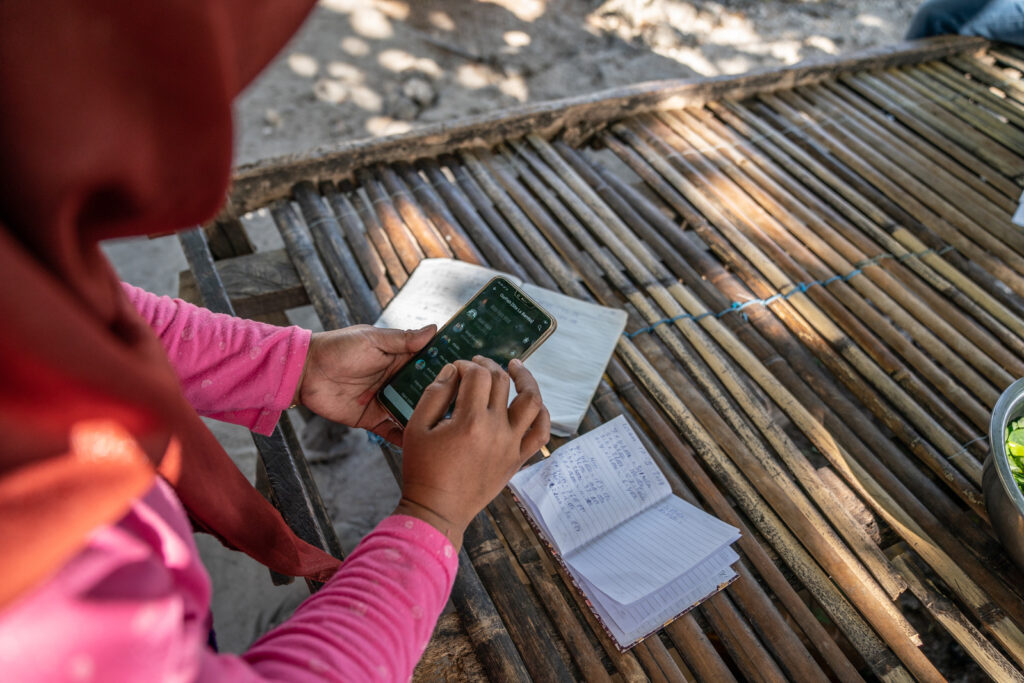
Tools for Effective Fisheries Management: Rare continues to develop and refine tools to help manage small-scale fisheries more effectively. We will soon train country teams on the Network of Marine Reserves (NMR) planning tool, which allows users to visualize a region’s available spatial data and interactively choose a network of marine reserves that meets program targets, and our staff will train partners in using it to design optimal reserve networks. We continue to fine-tune the Fisheries Management Assessment Tool and the Ecological, Fisheries, and Socioeconomic dashboards based on staff and partner feedback, in addition to translating our tools and dashboards into all Fish Forever country languages. We recently released the first version of the interactive Climate Change Vulnerability Assessment dashboard which visualizes assessment results and helps our country teams communicate findings.
Philippines
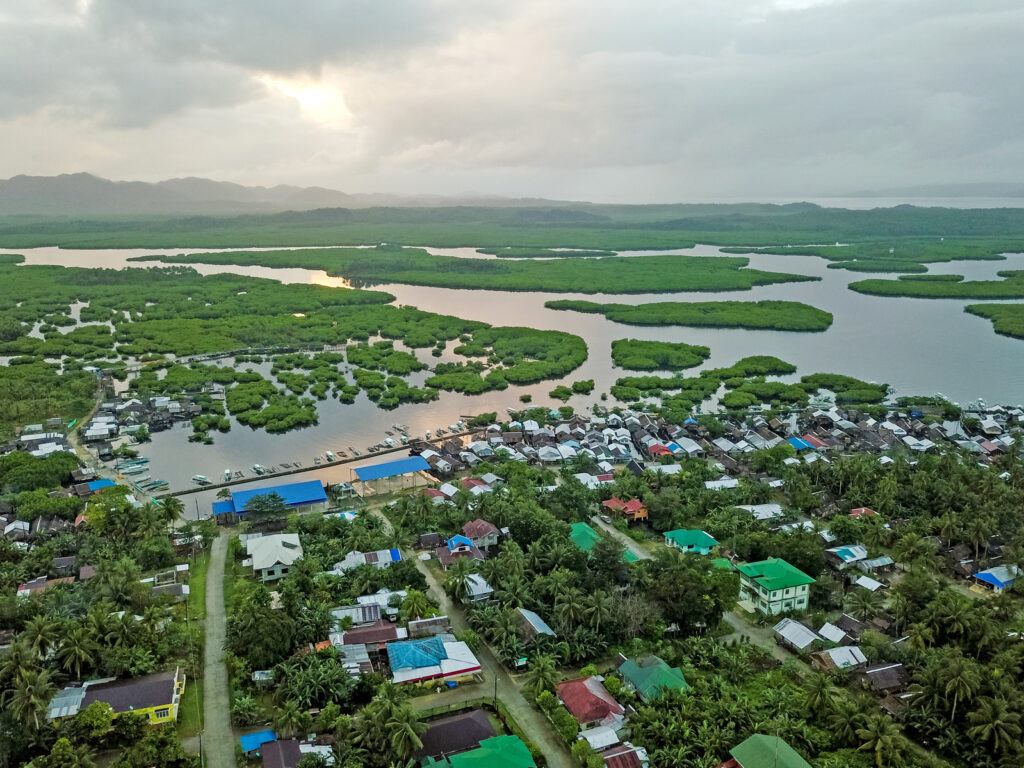
MMK Award Finalists: Libertad in Antique and Del Carmen in Surigao del Norte are among the five municipal finalists in the Malinis at Masaganang Karagatan (MMK) awards, the Bureau of Fisheries and Aquatic Resources’ annual search for the country’s most outstanding coastal communities. Both towns have partnered with Fish Forever since the program’s beginning and have consistently displayed leadership in community-driven fisheries management.
Renewing the Rare-Peace Corps Partnership: Five years after their first collaboration, Rare and Peace Corps Philippines are renewing and expanding a strategic partnership to enhance sustainable fisheries in more fishing communities. In a recent virtual meeting, both groups noted positive impacts such as improved fish catch and higher community awareness that were documented in a case study about the collaboration. Rare supports Peace Corps volunteers working in coastal fisheries management by providing training, tools, information, and other resources. The expanded partnership will enhance training for volunteers and their community counterparts to broaden and strengthen local marine governance in the country.
Shedding Light on Illegal Fishing: The Philippine Center for Investigative Journalism recently published a story, featuring interviews with Rare staff, on challenges the municipal fisheries sector faces related to illegal fishing. Rare’s Julius Guirjen discusses the need to eradicate illegal practices that have resulted in a decline in fish stocks, while Dennis Calvan pushes for more local government spending in coastal resource management efforts that will benefit fishing communities. Read the article here.
A film and a podcast: Check out Rare’s COP26 landing page to see our latest video, Fishing for Climate Resilience in the Philippines and Indonesia, and a podcast about seagrass in the Philippines.
Mesoamerican Reef (MAR)
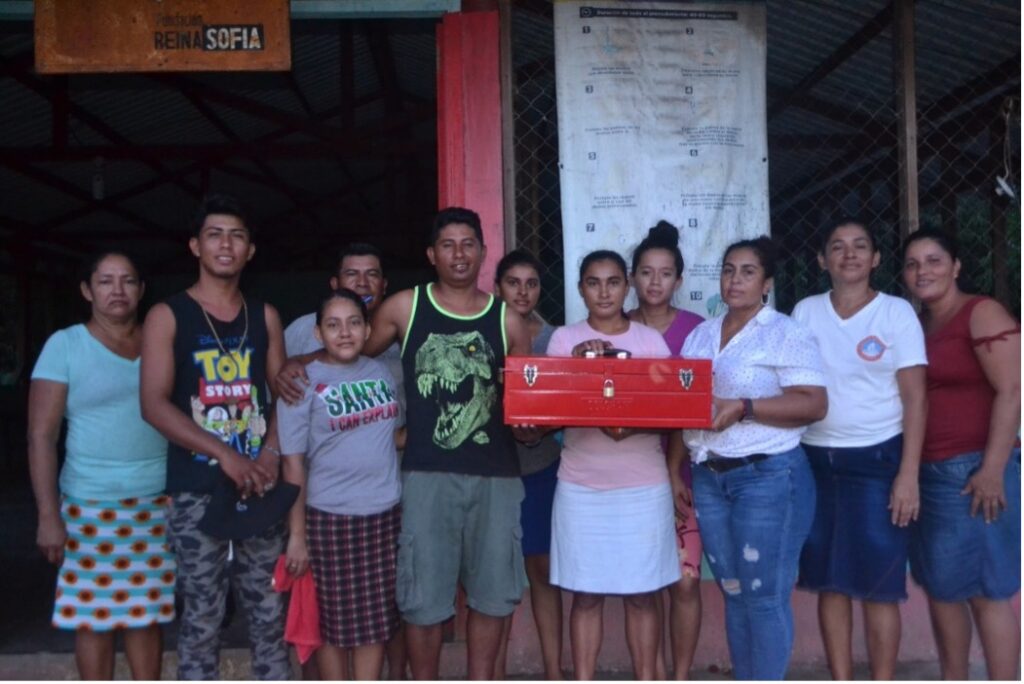
Fish Forever picks up steam in Guatemala: Rare has advanced program progress following June’s successful fisher registration drive in this new program geography. We collected baseline socioeconomic data to measure our impact and secured a formal partnership with the Puerto Barrios municipality that will unlock support for our work. We also celebrated the establishment of Guatemala’s first three savings clubs, reaching over 30 women in Mestizo, Garifuna and Q’eqchi’ communities in Puerto Barrios and Livingston.
Changing financial behaviors through financial literacy: Since the June debut of our financial literacy curriculum, our implementing partners have been deploying it with five savings clubs across different municipalities. Through weekly games, activities and challenges, fishing households are learning how to budget, classify their income, and better manage their finances to save and invest for the future. We will gather data and feedback from this initial set of clubs to evaluate our curriculum’s effectiveness and guide improvements before rolling it out to additional savings clubs in Honduras and Guatemala.
Including coastal communities in management: In August, we hosted a workshop with the Honduran Protected Area Authority (ICF) to strengthen the management of Honduras MPA network. Workshop participants reflected on the need to effectively include local communities in management and decision making and identified existing pathways to enable that effective participation. Rare will be working with ICF to put these ideas in action in two program sites in the upcoming year (Iriona and Limón). We expect these sites will become a model showcasing how to actively involve communities in coastal fisheries management for future MPAs.
Continued momentum for sustainable fishing behaviors: In September, our Fishing for Life campaign in Honduras reached three new municipalities: Puerto Cortés, Guanaja and Santa Rosa de Aguán. Puerto Cortés marked its arrival by hosting a night full of lights, song and dance, that fishers witnessed aboard their boats from the Alvarado Lagoon, a RAMSAR site in Honduras. Featured performances and speeches emphasized
Indonesia
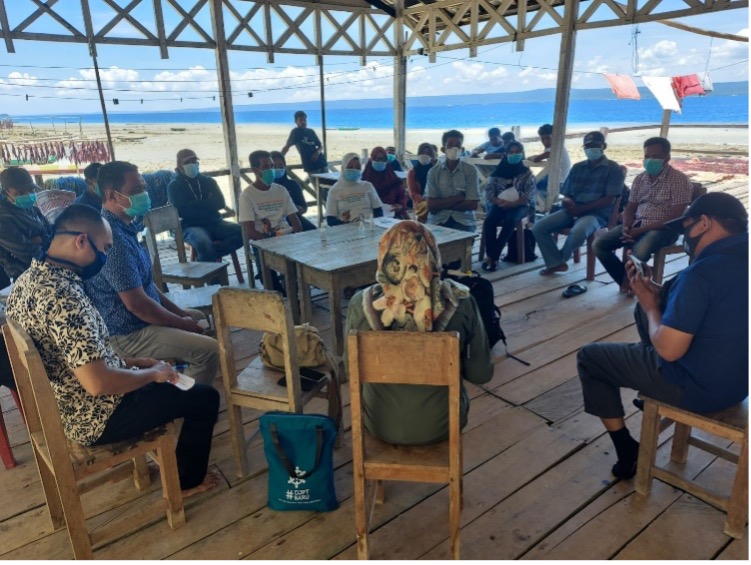
Legalizing Managed Access with Reserve Areas: Following the Governor of Southeast Sulawesi Province’s decree to ordain managed access and reserve areas, sixteen Fishery Management Bodies have now finalized and submitted their management plans for approval by the province government. By early 2022, we expect that 16 managed access and reserve areas, covering more than 280,000 hectares of marine waters, will be formally ordained. This will be a momentous milestone for the Fish Forever program in Indonesia.
A Media Roadshow: As part of the Fish Forever province-wide behavior campaigns, Rare engaged ten local journalists who traveled to five program sites to understand and report on developments in fisheries management. The journalists contributed to 36 news and digital media stories on the ongoing community work including mangrove rehabilitation programs, sustainable fisheries management, and stories about local fishers.
Financing Fishing Villages: In October, the Head of Southeast Sulawesi’s Buton District officially enacted Regulation No 26/2021: Technical Guidance on the Use of Village Fund to Support Marine- and Fisheries-based Activities. This momentous achievement formalizes creating innovative sustainable financing for the managed access and reserve program. The regulation also enables financing through the national ‘Village Fund’ program to support sustainable small-scale fisheries programs.
Registering Fisheries Micro-businesses: In November, the team facilitated 20 fish traders from 11 program areas across eight districts in Southeast Sulawesi to register their businesses legally. By formalizing their businesses, the fish traders can gain better access to finance, business development services, and market expansion opportunities. The traders also received training to improve their capacities to integrate ecosystem-based adaptation principles into their businesses and financial systems. Rare partners in this work include the Research Institute of the Faculty of Economics and Business, University of Indonesia and ukmindonesia.id, an online hub of information, knowledge, and opportunities for building digital marketing for micro and small enterprises in Indonesia.
Saving Club Members deploy Social Funds for Waste Clean-Up: Savings club members in Moramo Bay have innovatively deployed their group social funds to clean up neighborhood waste after the group’s first saving cycle. Through the savings club, the all-female members have been practicing saving and financial management for a year, and after experiencing its benefits, they are continuing towards a second cycle.
Pacific Islands: Palau and Federated States of Micronesia (FSM)
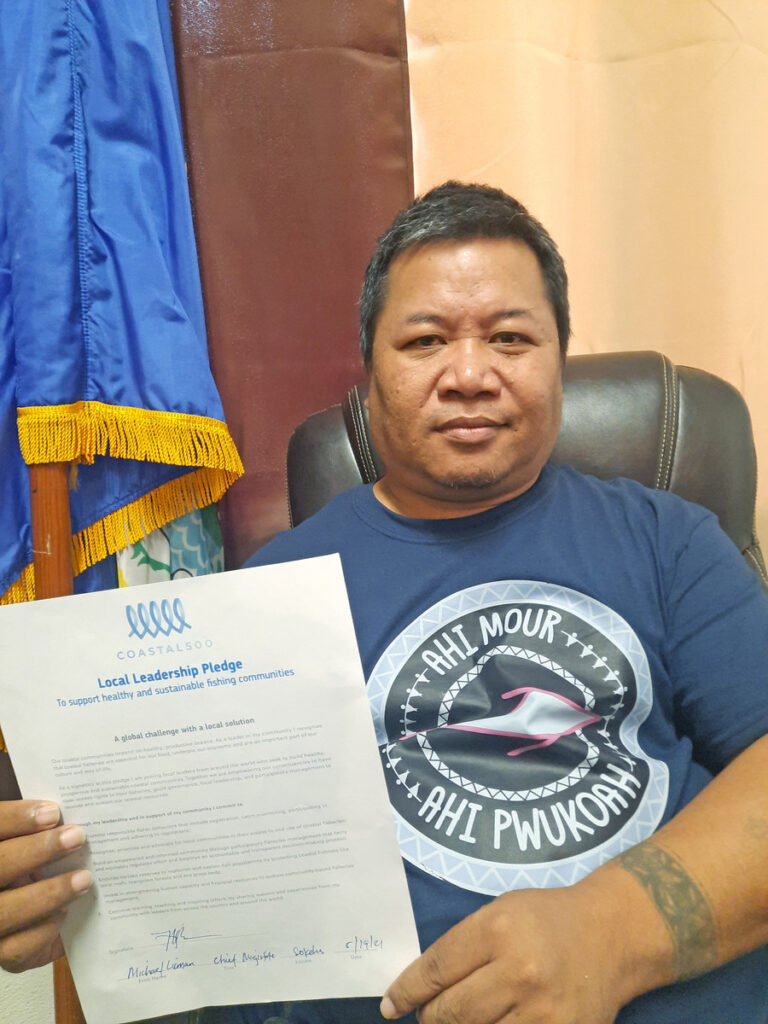
Local Leaders from Palau and FSM Pledge on CNN’s #CalltoEarth Day: On Nov 10th, as part of Coastal 500 and CNN’s #CalltoEarth Day, Governor Henaro Polloi of Palau’s Meleok state along with three mayors from FSM—Mayor Tony Sarapio (Kitti), Mayor Michael Liemen (Sokehs) and Mayor Nelsin Iriarte (Nett District)—signed their #Coastal500 pledges to work toward thriving coastal communities and the ocean they depend on. Watch the videos.
The Greatest Side Event at COP26: During the COP, Rare joined GLISPA, GEF Small Grants Program, and UNDESA to show successful island bright spots and exemplify how together we can build on what is working to conserve and sustainability utilize natural resources. During the event, “Fostering Island-led local Action into Global Coalitions,” Ambassador Peter Thomson closed the session by sharing, “We don’t need to reinvent the wheel. We can learn from each other. This is exactly what this event has done, and it is the best event that I’ve been to.” Watch the full event here.
Brazil

Rare Receives “Best NGO in Brazil” 2021 Award: The list of the “best NGOs in Brazil 2021” was released in early December, with Rare Brazil selected among the 100 best organizations in the country. The prestigious award, given by Instituto Doar, recognizes and promotes the NGOs for excellence in management, governance, financial sustainability, and transparency. Instituto Doar’s mission is to expand Brazil’s culture of giving. The complete list can be accessed at https://www.premiomelhores.org/.
Mothers of the Mangroves Four-Part Film Series: In Brazil’s Pará state, mangroves provide fishing habitats, buffers against extreme weather, and a source of pride for women in coastal communities. This year, Rare Brazil partnered with Purpose – a movement building organization – to produce the “Mothers of the Mangroves” video series giving voice to the women who nurture these ecosystems that support their lives and livelihoods. The network of Mothers of the Mangrove, partners and communities launched the Cozinha da Maré cookbook.
Delivering Food-Ticket Cards to Local Associations: In October, Rare Brazil continued to connect 12 Local Associations in Pará with the organization Gerando Falcões. This month, 1,200 food-ticket cards were handed out (100 cards per association), valued at US$58 per unit, totaling US$70,000 for families to buy food in local markets. This successful partnership helps families, empowers local associations, and fosters the local market.
Mozambique
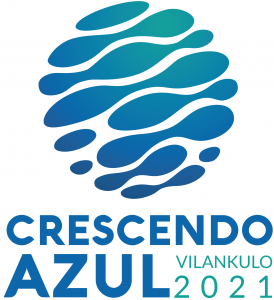
Mozambique at the Growing Blue International Conference: Rare joined the 2nd Growing Blue International Conference to discuss community-based approaches to sustainable and resilient small-scale fisheries in Mozambique. Forty donors, partner NGOs, and government officials joined Rare’s virtual event, convened with support from the Blue Action Fund, to showcase global marine program practices and highlight the fundamental components of successful co-management approaches. The event also celebrated the achievements of partners, such as the demarcation of the first Community Managed-Access and Reserve area.
World Fisheries Day: On November 21st, Rare and government partners, including the Minister of the Sea, Inland Waters and Fisheries joined local fishing communities of Inhassoro (a Rare-supported site) in celebrating this global event, with mascots, canoe races, school visits and radio and TV features.
FIELD-BUILDING RESEARCH
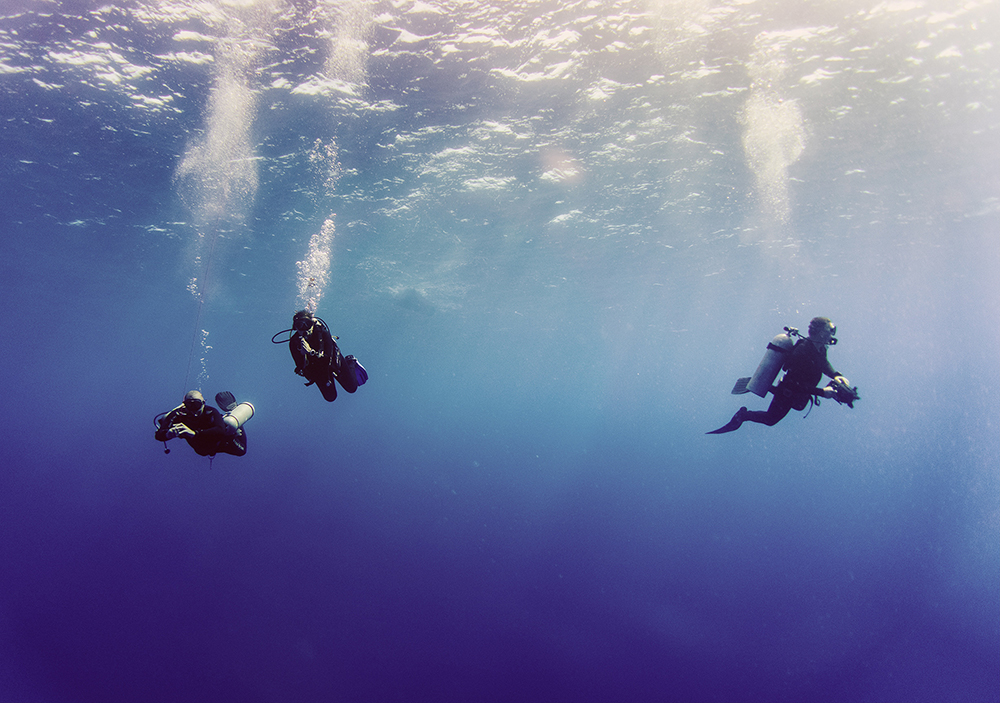
Limited Progress in Improving Gender and Geographic Representation in Coral Reef Science (September 2021)
Ahmadia Gabby N., et al. (2021) Limited Progress in Improving Gender and Geographic Representation in Coral Reef Science. Frontiers in Marine Science, vol. 8, no. 2296-7745, pp. 1334, doi:10.3389/fmars.2021.731037.
Diversity, equity, and inclusion (DEI) in the research community new ideas, perspectives, and progress in scientific research. Scientific research has the power to shape societal norms, priorities, policies, and environmental solutions, and without diverse representation in authorship, these solutions produced may not be appropriate and may even exacerbate existing inequities. By examining authorship trends in coral reef science from 2003 to 2018 in over 1,500 scientific articles, Ahmadia et al. found that although women’s representation in authorship has increased, the rate of increase is alarmingly slow: it would take over two decades for women to be equally as represented as men. The authors also found that representation from non-OECD countries or non-OECD developing nation members has increased but even more slowly. With the effects of climate change on coral reefs worsening and management strategies in need of improvement and innovation, more equitable and accelerated representation is needed more than ever. The authors recommend increased geographic representation in authorship—especially from countries where the research is undertaken-, improvement of gender representation in research teams and leadership, and for the scientific community to directly address historical and institutional issues and cultivate measurable and concrete actions to improve DEI.
Implications of Community-Based Management of Marine Reserves in the Philippines for Reef Fish Communities and Biodiversity (Oct 2021)
Marriott Sara E., Cox Courtney, Amolo Rizaller C., Apistar Dean, Mancao Roquelito H., de Mutsert Kim (2021) Implications of Community-Based Management of Marine Reserves in the Philippines for Reef Fish Communities and Biodiversity. Frontiers in Marine Science, vol. 8, no. 2296-7745, pp. 1334, doi: 10.3389/fmars.2021.731675.
Artisanal fishing makes up nearly 50% of the Philippines’ marine fish capture, with much of it under reported or not reported at all. With overfishing and destructive fishing practices putting pressure on these largely unsustainable fisheries that support 1.9 million small-scale fishers, no-take marine reserves prohibiting fishing are vital and have been implemented in many local governments to preserve biodiversity. However, the lack of a governance system, and subsequently a lack of infrastructure for monitoring, evaluation, and enforcement, in the Philippines and many emergent countries around the world, leaves the effectiveness of these reserves up for debate. As a result, community-based management systems have been implemented by non-governmental organizations, like Rare. The authors of this study used independent fisheries data from Rare’s Fish Forever program to assess two indicators of effectiveness, fish community structure and biodiversity, comparing them inside and outside of marine reserves, before and after community-based management had been implemented. The authors provide evidence that community-based management positively impacts fish community structure within the reserve and promotes biodiversity both inside the reserve, and outside of the reserve in some cases. However, not all sites followed the same pattern, indicating that other social or ecological factors are influencing success. While community-based managements schemes have evidenced success in many of the reserve sites studied here, the authors ultimately urge that fisheries management strategies must be evaluated by site.
Reef Fish Perceptions Acknowledge the Socio-Environmental Effectiveness of a 20-Year Old Brazilian Marine Protected Area (September 2021)
Márcio Luiz Vargas Barbosa Filho, Gabriel Barros Gonçalves de Souza, Sérgio de Faria Lopes, Rachel Ann Hauser-Davis, Salvatore Siciliano, José da Silva Mourão (2021) Reef fisher perceptions acknowledge the socio-environmental effectiveness of a 20-year old Brazilian Marine Protected Area, Marine Policy, vol. 134, no. 0308-597X, doi: 10.1016/j.marpol.2021.104797
Marine Extractive Reserves (MERs) in Brazil are the Brazilian government’s largest, most significant endeavor to protect fisheries resources. MERs are modeled on a co-management, or community-based management, design through which fishers and local communities can participate in the decision-making surrounding resource-use and reserve conservation. However, little evidence exists on the model’s efficiency, with several resultant legal conflicts from current Brazilian legislation. The MER of Corumbau (MERC) is one of Brazil’s most well-known MERs due to its ecologically relevant region. It was established to safeguard locals’ livelihoods. But instead, according to surrounding fishing communities, it brought the “invasion of outside boats” to the region and created significant social, cultural, and mostly environmental damage. Minimal data exists on the 20-year reserve’s effectiveness in improving the surrounding community’s well-being. This study analyzed fisher perceptions of the MERC’s socio-environmental effectiveness and found that most respondents had a positive perception of no-take zones and perceived positive welfare and environmental changes. Although communities closer to the MPA border had more negative perceptions of its effectiveness, the results at large suggest strong support for MPAs in safeguarding the well-being of small-scale fishers.
Fish Forever: A solution to coastal overfishing – delivered by empowering communities through clear rights, strong governance, local leadership, and participatory management – that protects essential fish habitat and regulates fishing activities to replenish and sustain coastal fisheries.
Goal: To deliver replicable and scalable community rights-based management across ten countries, using a global network of 500 local leaders to secure livelihoods for one million fishers, alleviate poverty, ensure food supply, and protect coastal ecosystems from chronic threats.
Fish Forever Countries: Philippines, Indonesia, Mozambique, Brazil, Honduras, Guatemala, and the Pacific Island countries of Palau and the Federated States of Micronesia.
Fish Forever is possible thanks to the support of many, including the following current donors:
